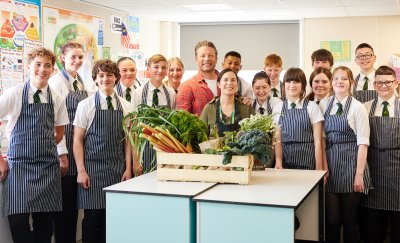 Sweet lunch. Credit: Pexels
Sweet lunch. Credit: Pexels
Children’s health at risk from policy inaction on obesity
An officially commissioned report, seen by the Guardian, has warned of the harmful impact on the health of children in England as the Government repeatedly shelves anti-obesity measures.
Findings from the City, University of London, report include:
- Ultra-processed foods (UPFs) and foods high in fat, salt and sugar (HFSS) have become normalised in children’s diets.
- Anti-obesity policies such as the 9pm junk food advertising watershed and restrictions on unhealthy buy-one-get-one-free deals have been shelved until October 2025.
- Families on lower incomes are most affected by the availability of cheaper, less healthy food, as wealthier families are ‘positioned to continually stock their homes’ with healthier, often more expensive food.
The report highlights the ubiquity of UPF and HFSS foods, which overlap significantly, in children’s diets and the unequal impact this is having on families of different incomes. Deals such as multi-buy offers make these foods seem better value and the report’s authors claim more is needed to increase access to, and the appeal of, healthier foods.
The National Food Strategy recommended in 2021 that a range of measures be introduced to support families to eat more healthily, including expanding the Healthy Start scheme and improving access to fruit and vegetables. These could be funded by revenues from a salt and sugar reformulation tax, also argued for by the Recipe for Change campaign. The Strategy’s recommendations have largely been ignored to date.
The health impact of eating too much of these foods has been well documented in adults but the report highlights the growing evidence that children and adolescents are also at increased risk of type 2 diabetes, heart disease and other serious health conditions.
Katharine Jenner, director of the Obesity Health Alliance, quoted in the Guardian, said:
“Parents are sick and tired of being scolded when unhealthy options are often the only ones available to them. It is upsetting to hear that parents on low incomes are unable to buy whole fruit for their children, even though they know it is healthy, as they consider it ‘financially risky’. …This new research shows how we need the government to urgently step in and regulate companies that harm the health of our children.”
A government spokesperson, responding to the report, said:
“The government is helping young people live healthy, active lives by funding the distribution of 420m pieces of fruit and vegetables to younger school children each year and delivering dramatic reductions in the amount of sugar in children’s foods like breakfast cereals, yogurts and fromage frais, through our voluntary sugar reduction programme.”
Voluntary reduction programmes have, however, been limited in their impact and have not led to change that is rapid enough to significantly improve public health. The mandatory Soft Drinks Industry Levy, introduced in 2018, is the only measure to have significantly reduced the amount of harmful excessive sugar in products sold.
The government also said, “we are restricting the placement of less healthy products in shops and online – for example near cashiers – to reduce the likelihood of unhealthy impulse purchases.” However, the recent ‘Location, Location, Location’ report from the Obesity Health Alliance and Food Active has found that whilst many retailers have made good progress, some retailers are still not acting in the spirit of the Food (Promotion and Placement) legislation.
Meanwhile, health secretary Victoria Atkins has said that her approach to tackling obesity will largely focus on providing dietary advice, which ignores the pervasiveness of advertising, low-cost promotions and the easy availability of unhealthy foods.
Kate Howard, Children’s Food Campaign Coordinator at Sustain, says:
"It’s frustrating to hear the impact that this unnecessary lack of action is having on children’s health. This report shows the Government needs to follow through with existing plans on multi-buy restrictions and reducing junk food advertising, as well as extending the Soft Drinks Industry Levy to get companies to reduce the salt and sugar in our food. Any revenues raised can then be fed back into much-needed initiatives to support children’s health and access to good food."
Read the full Guardian article on the report here.
Children's Food Campaign: Better food and food teaching for children in schools, and protection of children from junk food marketing are the aims of Sustain's high-profile Children's Food Campaign. We also want clear food labelling that can be understood by everyone, including children.
Sustain
The Green House
244-254 Cambridge Heath Road
London E2 9DA
020 3559 6777
sustain@sustainweb.org
Sustain advocates food and agriculture policies and practices that enhance the health and welfare of people and animals, improve the working and living environment, promote equity and enrich society and culture.
© Sustain 2024
Registered charity (no. 1018643)
Data privacy & cookies








